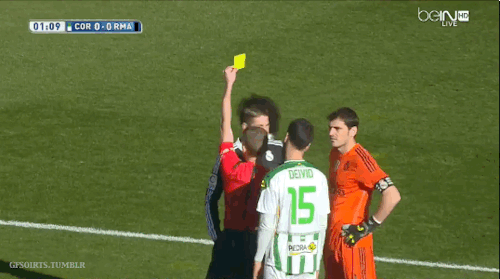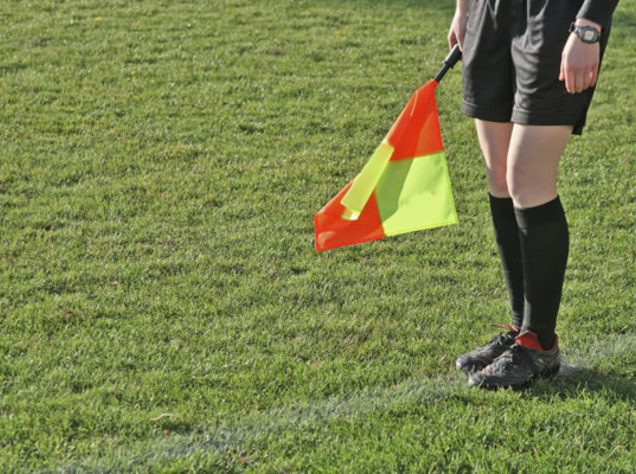Interacting With Your Referee
Interacting with a referee in soccer can be a tricky situation — what’s too much? Too little? Should you defend your teammate? How is it possible to stay calm all the time? It’s a high-wire act of getting your point across without showing up the referee team on the pitch. As a soccer player, coach, or parent, it’s hard to ignore when you feel the referee has made a bad decision.
Of course, It’s natural for a referee to make at least one mistake during a game — after all, they are only human. Understanding that fact will help you accept these mistakes even if it affects the outcome of the soccer game. It’s important to not lose your temper with your soccer referee as this can further change the outcome of the soccer game. Luckily, CoachUp has outlined some steps to help you win your appeal when making a claim to the referee.

Keep Your Cool
The absolute worst thing you can do as a soccer player, coach, or parent is to lose your temper with a soccer referee. Unsurprisingly, referees do not take kindly to abuse. Your harsh words may even prompt them to develop a bias against your team for the rest of the game. As a player, it’s important to remain focused on the game rather than the referee. Soccer is a fast-paced game and if stay focused on a missed call from the referee, you might miss the next play of the game.
Have A Chat
As mentioned before, soccer referees are only human. They are prone to error and will, more often than not, make a mistake that will hinder a team during the course of a game. Accepting this fact and reacting accordingly will foster a sufficient on-field relationship with the referee. If you feel the referee may have missed a call, you can politely ask the referee to watch out for that transgression in the future.
Try not to actively criticize the referee when making this request, don’t patronize him at all, either. If you feel an opposing player may be playing dangerously, it’s also a good idea to inform the referee in a well-mannered fashion.
Shake Hands
Playing soccer at the high school level generally means your opponents will be from your area. As refereeing at the high school level is not a particularly competitive job, you may begin to see some familiar faces on the officiating team. Therefore, it wouldn’t be wise to burn any bridges with referees in case they officiate any of your team’s future games. Being polite and shaking a referee’s hand at the end of a game is a sensible gesture. Showing appreciation for their hard position can only benefit you in the future.
Unless You’re Captain, Be Quiet
Leave the talking to your leader. Sure, everybody has felt egregiously wronged by a call and it’s fine to politely discuss with the referee — but all communication should come through your captain.
Your captain can gather complaints from both the coaches and players during halftime and tell the referee about their concerns before kick-off. The less an angry, emotional player speaks to a ref, the less of a chance there is for things to get out of hand. Captains are often one of the most level-headed players on the pitch, so they’ll stay calm.
(Related: Read about how verbal communication is key here.)
Huddle Up
It’s perfectly reasonable to feel emotional on the pitch — especially if it’s a late-round tournament game or tense matchup, but remember that you’re not the only person on the field. Aside from you and your immediate feelings, don’t forget that you’re representing yourself, your team, and family while participating. If you get too heated, you’ll never get respect from the referee.
If things get too out of hand, you might even get thrown out of the game, further hindering your team’s chances of winning. So, bottom line, just be careful — and if you’re not the captain, err on the side of silence, no matter how upset you are.
How useful was this post?
Click on a star to rate it!
Average rating 5 / 5. Vote count: 2
No votes so far! Be the first to rate this post.




One Response
Can a referee speak to a coach or player after the game about a call?